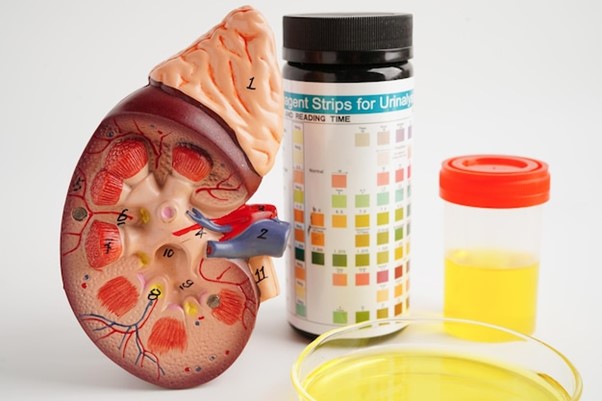Your kidneys are incredibly important organs that work non-stop to maintain your health. They filter waste from your blood, regulate fluid balance, control blood pressure, and assist in the production of red blood cells. Despite their importance, kidney problems often develop slowly and without noticeable symptoms. That’s why regular kidney function tests are essential for early detection and prevention.
This blog will walk you through the importance of kidney tests, types of tests, and why they’re crucial for long-term health. We’ll also dive into how routine checkups can help you catch any issues early, potentially avoiding more severe complications down the road.
Why Monitoring Kidney Health Is Important
Your kidneys play an essential role in filtering toxins from your blood and helping regulate key body functions. However, kidney disease, including chronic kidney disease (CKD), is often silent in its early stages. Symptoms don’t typically show up until the kidneys have been significantly damaged, making early testing all the more important.
Routine kidney function tests can detect changes in kidney health before they develop into more serious issues, such as kidney failure or cardiovascular complications. By catching kidney problems early, you can take proactive steps to manage and prevent further damage.
Common Kidney Function Tests
Several tests are available to assess kidney function. Each one measures a different aspect of kidney performance, helping doctors diagnose potential issues early on.
1. Serum Creatinine Test
Creatinine is a waste product generated by muscles as they break down creatine. A blood test measuring serum creatinine levels helps evaluate kidney function. Healthy kidneys filter out creatinine efficiently, but elevated levels may indicate that the kidneys are struggling to do so.
Why It Matters: High creatinine levels can indicate kidney dysfunction or damage.
2. Glomerular Filtration Rate (GFR)
The GFR measures how much blood your kidneys filter per minute. This test gives an estimate of kidney function, and it’s considered one of the best indicators of kidney health. Your GFR can be calculated using your serum creatinine level, age, gender, and ethnicity.
Why It Matters: A lower GFR suggests reduced kidney function. A GFR below 60 for three months or more could be a sign of chronic kidney disease.
3. Urinalysis
A simple urine test, or urinalysis, checks for abnormalities in your urine, such as the presence of proteins, blood, or glucose. Finding protein in the urine (proteinuria) is one of the earliest signs of kidney damage.
Why It Matters: Regular urinalysis helps detect kidney issues early, even before other symptoms appear.
4. Blood Urea Nitrogen (BUN) Test
The BUN test measures the amount of urea nitrogen in your blood, a byproduct of protein breakdown. High levels of urea nitrogen can indicate impaired kidney function or other health problems like dehydration.
Why It Matters: Elevated BUN levels can point to kidney dysfunction, although they might also reflect other conditions.
5. Imaging Tests
In some cases, doctors may recommend imaging tests, such as an ultrasound or CT scan, to visualize the kidneys and detect structural problems like cysts or kidney stones. These tests can also show the size and shape of your kidneys, offering more insight into their health.
Why It Matters: Imaging tests help doctors assess any physical abnormalities in the kidneys that may be affecting function.
Who Should Get Kidney Function Tests?
Regular kidney function testing is crucial for people at higher risk of kidney disease, including:
- People with diabetes: Diabetes can damage the kidneys over time, so monitoring is key.
- Those with high blood pressure: High blood pressure is a leading cause of kidney disease.
- People with a family history of kidney disease: Genetics can play a role in kidney health.
- Adults over 60: Kidney function naturally declines with age, so older adults should stay vigilant.
- Anyone experiencing symptoms: Swelling, blood in urine, fatigue, or changes in urination are warning signs.
What Do the Results Mean?
The interpretation of your test results depends on the specific test and its context. For instance, an elevated creatinine level or a low GFR may indicate that the kidneys are not functioning properly, but these results should be interpreted alongside other health factors. Your healthcare provider will provide guidance on any next steps if your results are abnormal, which could include further testing or lifestyle modifications.
Supporting Kidney Health
Aside from regular testing, you can support your kidney health by making healthy lifestyle choices:
- Stay Hydrated: Drinking enough water helps your kidneys filter waste effectively.
- Control Blood Sugar and Blood Pressure: Keep diabetes and hypertension under control to reduce kidney strain.
- Eat a Healthy Diet: A diet rich in fruits, vegetables, and low in salt can support kidney function.
- Exercise Regularly: Physical activity improves circulation and overall kidney health.
- Avoid Smoking and Limit Alcohol: Smoking and excessive drinking can both harm kidney function.
Conclusion: Take Charge of Your Kidney Health with Medique
Your kidneys are essential for maintaining good health, and regular kidney function tests play a crucial role in ensuring they stay in good condition. Whether you’re looking to monitor your kidney health regularly or have specific concerns, catching potential issues early is key to avoiding long-term damage.
At Medique, we specialize in offering comprehensive kidney function testing and personalized care. Our team of experts is here to guide you through every step, from testing to tailored treatment plans that help protect your kidney health.
Don’t wait for symptoms to show—schedule your kidney function test today at Medique! Protect your health and enjoy peace of mind knowing you’re taking the right steps toward a healthier future.


